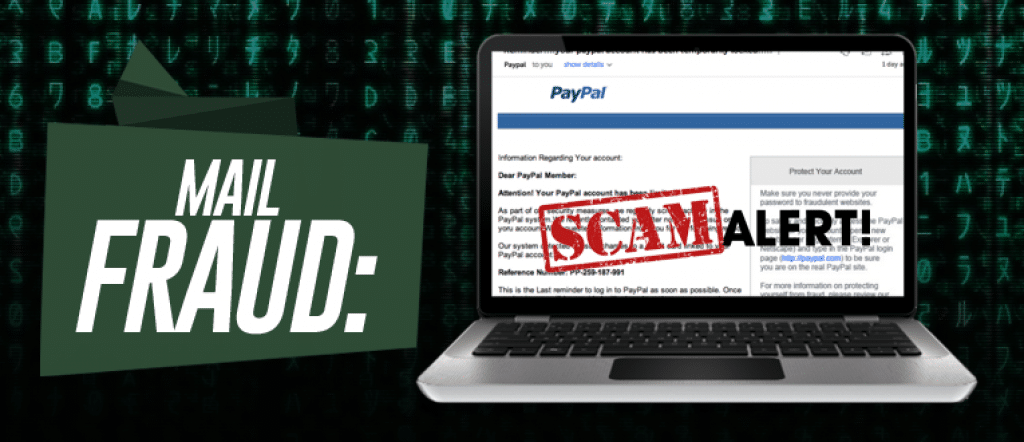Mail Fraud
Mail fraud is a practice that has steadily been on the rise especially in first-world nations such as the United States of America.
This has prompted several governments to declare it a crime that is punishable by law.
Essentially, mail fraud is when someone formulates (or intends to formulate) any scheme with a purpose of obtaining money under fraudulent circumstances, or exchanges any counterfeit coin or currency through the aid postal facilities.
Elements of Mail Fraud
There are three elements of mail fraud:
1. Intent: this is when someone intends to carry out mail fraud.
2. Obtaining money through fraudulent means. In other words, this is soliciting money from a third party through means which are deemed unlawful.
3. Mail communication. This is when people communicate with each other through the facilities of the postal service. For one to prove that mail fraud has actually occurred he or she must give evidence of misrepresentation.
This is due to the fact that fraudsters have become more and more crafty and have now begun using international mailing companies to hide their identity.
This raises difficulty in tracing these criminals since foreign mailings are not included.
Forms of Mail Fraud
There are various forms of mail fraud, such as:
- financial fraud
- charity fraud
- creditor or debit card fraud
- oil and gas investment fraud
- land fraud
- solicitations disguised as invoices
- Ponzi schemes
- advance fee loan schemes
- employment fraud
- distributorship and franchise fraud
- fake job opportunities
- pyramid schemes
- postal job scams
- work-at-home schemes
- lottery fraud
- free prize schemes
- free vacation scams
- chain letters
- telemarketing fraud
- land sale fraud
- insurance fraud
Penalties for Mail Fraud
Contrary to common belief, mail fraud is a serious offense that is punishable by law.
The governments of various countries such as the United States of America have put in place heavy penalties on mail fraud offenses so as to discourage people from committing them.
The offender may face a jail term of no more than twenty years.
Follow-up
There are various bodies put in place to investigate matters such as missing mail and generally, mail fraud.
For example, the United States Postal Inspection Service investigates cases of mail fraud in the USA.
[/vc_column_text][/vc_column][/vc_row]

Unfortunately, I have been a victim of several scams over my lifetime. Several were from sending in money or information through the mail when I thought was a legit business or if I had a collector from a previous debt mailing me. I have taken actions against the scammers, but I still feel violated. Therefore, I was actually very encouraged to read about the Mail Fraud on the site and all the ways I and others could become a victim, but also how to not be. The fact that legal action CAN be done, is a step, but also that Identity Guard, and all the other products associated can help you, me, watch to make sure none of my personal information gets passed in the wrong hands, is great.
Hi Sarah, the first thing I would do to avoid mail fraud is to get a PO box. That way everything is sent to a secure location and kept locked. Then by hiring an identity theft protection company, they will monitor your identity and let you know if anything looks out of place.
Hi, thanks so much for the advice. I am definitely looking into obtaining a PO Box, and also more options that the postal service offers. It’s also a great comfort that there are legit and safe identity theft protection companies out there, and some with GREAT rates, especially Identity Guard. I’m doing A LOT of research.
Mail fraud is one of the common problem faced by people online. I am a victim of scam before. But I think I now I am enlightened
I was actually pushed to read about the Mail Fraud on this site by one of my friends, as I have been a prey of some cheats over my lifetime. Thanks for sharing such an informative post with us. Appreciate!
I get a lot of mail asking me for donations or other things involving sending money, and even though it all seems legitimate, I never send any money in that regard by mail. If I want to donate to a charity that I receive mail from, I go to their website to make sure it’s official and I make my donation that way, rather than sending back mail in an envelope and not knowing for sure where it’s going.
I do get the same types of email on a regular basis and although they look legit, I still wouldn’t send the recipient the money through the link they give. But you know, over the years, you’ll see how the fraudsters have become so good at this that it’s no wonder many people fall for their scams. A few years back, you can easily tell it’s a scam based on the grammar alone, but nowadays, it’s a different game. Some of them have become sophisticated and they now use technology to scam unsuspecting individuals. Phishing emails look like the real thing now and it’s hard to tell them apart. My rule is if I’m not sure about the email, I really don’t click on any links. Better be safe than sorry.